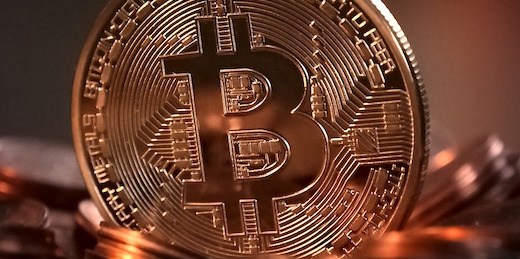The article titled “Blockchain and cryptocurrencies herald the demise of traditional banking”, appeared in The National’s print edition on 18th Oct, 2017 and is posted below. Click here to access the original article.
Blockchain and cryptocurrencies herald the demise of traditional banking
The banking world – including central banks and regulators — is being massively disrupted by new technologies: artificial intelligence and machine learning, blockchain, fintech and cryptocurrencies.
Blockchain can enable financial and other transactions to happen in seconds, not days, and drastically reduce infrastructure costs. It is an encrypted, secure protocol for creating trust between contracting or transacting parties without going through a central authority such as a central bank, government or another agency. Blockchain underpins cryptocurrencies such as bitcoin, ethereum, ripple and many initial coin offerings.
The dollar value of the top 10 biggest cryptocurrencies is around US$150 billion, while UBS estimates that blockchain could add as much as $300bn to $400bn of annual economic value globally by 2027. Despite the Mt Gox hacking scare in 2014, that saw around $400 million worth of bitcoins go missing from a bitcoin exchange in Shibuya, Japan, the country’s parliament passed a law in April this year making bitcoin a legal method of payment, and the nation’s largest banks have invested in bitcoin exchanges.
An increasingly digital world and sharing economy require digital currencies. Paper currency is starting to look like an anachronism, a legacy of a bygone age.
What is a cryptocurrency?
Cryptocurrencies use blockchain decentralised ledger technology (DLT) to let users make secure payments and store value without the need to use their name or go through a bank or a payments company like MasterCard or Visa. The cryptographic function used in blockchain ensures the integrity of the record. Blockchain’s distributed public ledger maintains an updated record of all transactions and assets held by currency holders. Unlike mobile payment solutions like M-Pesa, cryptocurrencies provide their own unit of account and payment systems.
Cryptocurrencies such as bitcoin or ethereum allow for peer-to-peer transactions without central clearinghouses, without central banks and without reference to a national money. They are not the liability of anyone and effectively compete with national currencies.
Faced with such a challenge, central banks across the globe are busily preparing to issue cryptocurrencies. Singapore’s Project Ubin is an ongoing collaborative project where the banking industry will explore the use of DLT for clearing and settlement of payments and securities.
Some 20 per cent of surveyed central banks in a recent study by the Cambridge Centre for Alternative Finance indicated that they will be using blockchain technology by 2019, and 40 per cent will have active blockchain applications within a decade.
Cryptocurrencies issued by central banks could either be a type of decentralised digital cash for consumers, or a wholesale tool to streamline settlements of transactions between financial institutions.
The choice is not trivial. Issuing retail digital cash would effectively mean the demise of fractional reserve banking. As Max Raskin and David Yermack noted in a paper for the National Bureau of Economic Research: “A sovereign digital currency could have profound implications for the banking system, narrowing the relationship between citizens and central banks and removing the need for the public to keep deposits in fractional reserve commercial banks.”
Commercial banks and stock exchanges could become an extinct species within the next twenty years and monetary policy would have to be radically changed. The laws and regulations of banking, securities markets, credit markets and so forth will need to be radically overhauled to accommodate the disruptive, paradigm shift in technologies.
The UAE is a blockchain leader
Dubai launched its “Blockchain Strategy” last year with the ambition to become the first blockchain government by 2020. By shifting all transactions to blockchain, it plans to save 25 million work hours annually through paperless transactions. The Dubai Land Department this month became the world’s first government entity to adopt blockchain. It records all real estate contracts, including lease registrations, and links them with the Dubai Electricity and Water Authority, the telecommunications system and various property-related bills.
Dubai is also preparing to issue emCash, an official state cryptocurrency to make Dubai the world’s first blockchain city. Similarly, the regulators of the UAE’s financial centres – ADGM and DIFC – are embracing fintech and its underlying technologies. ADGM’s Regulatory Laboratory (RegLab), is providing a light-regulation sandbox environment for regional start-ups, one of the first programmes of its kind in the region. Both centres have held global competitions to identify and support innovators in fintech.
A ‘Brave New World’ is emerging
Blockchain and associated innovating technologies will massively disrupt the economic, banking, and financial landscape, with applications to identity management, smart contracts, securing supply chains, authenticating and assuring both “real” (real estate, art and diamonds) and digital assets (securities and media) and associated intellectual property rights. Stock exchanges could operate at much lower costs or disappear, fraud would become near impossible, accounting, auditing and assurance services could become redundant.
Given blockchain’s data integrity, there will be a reduction in systemic risk and operational improvements. This is a wake-up call to our governments, central banks and regulators to embrace the new paradigm or have our economies waste away behind.






